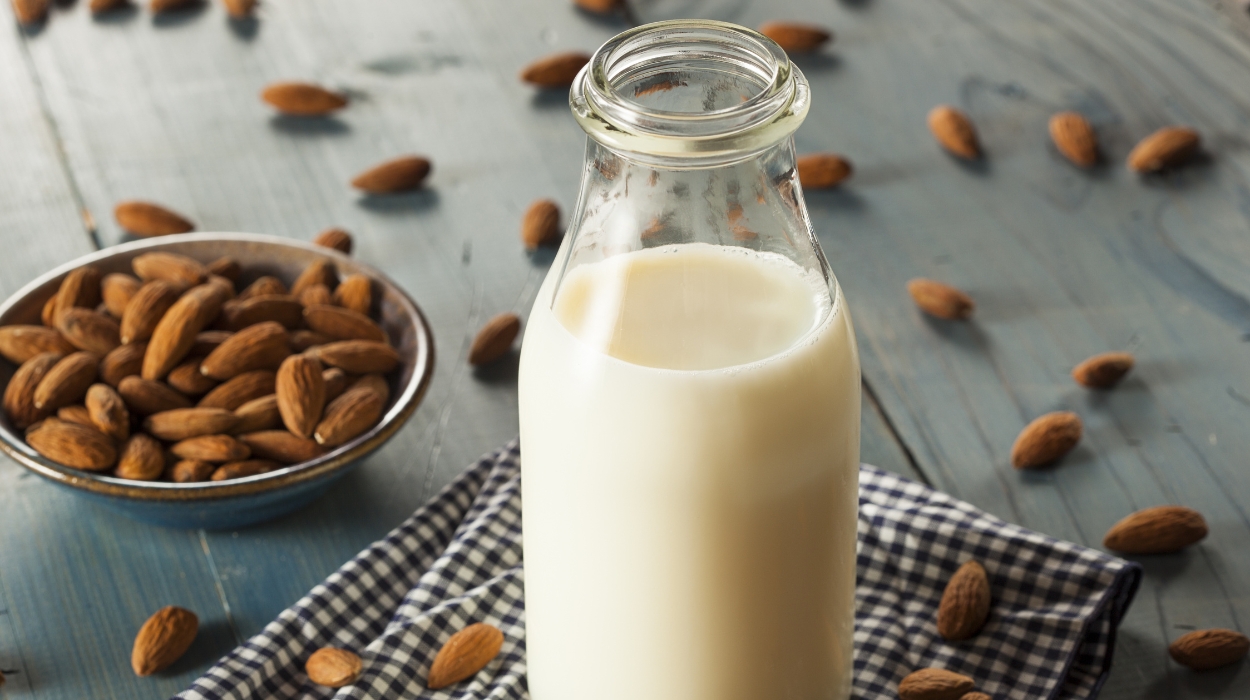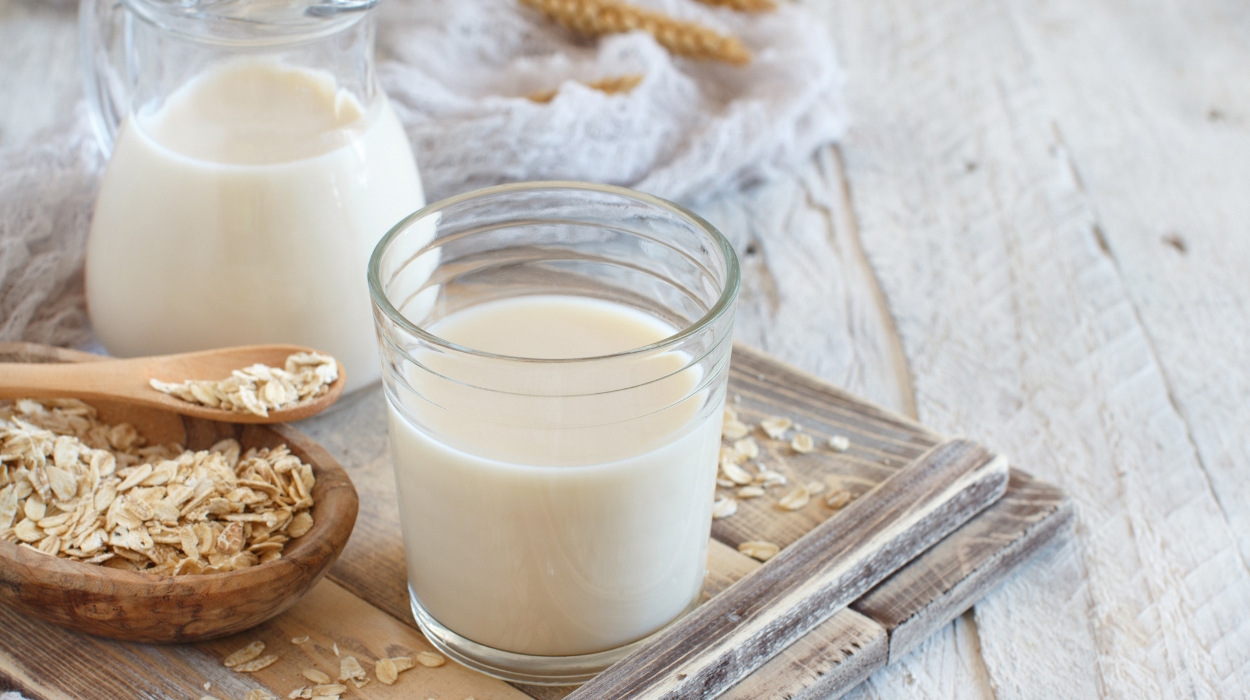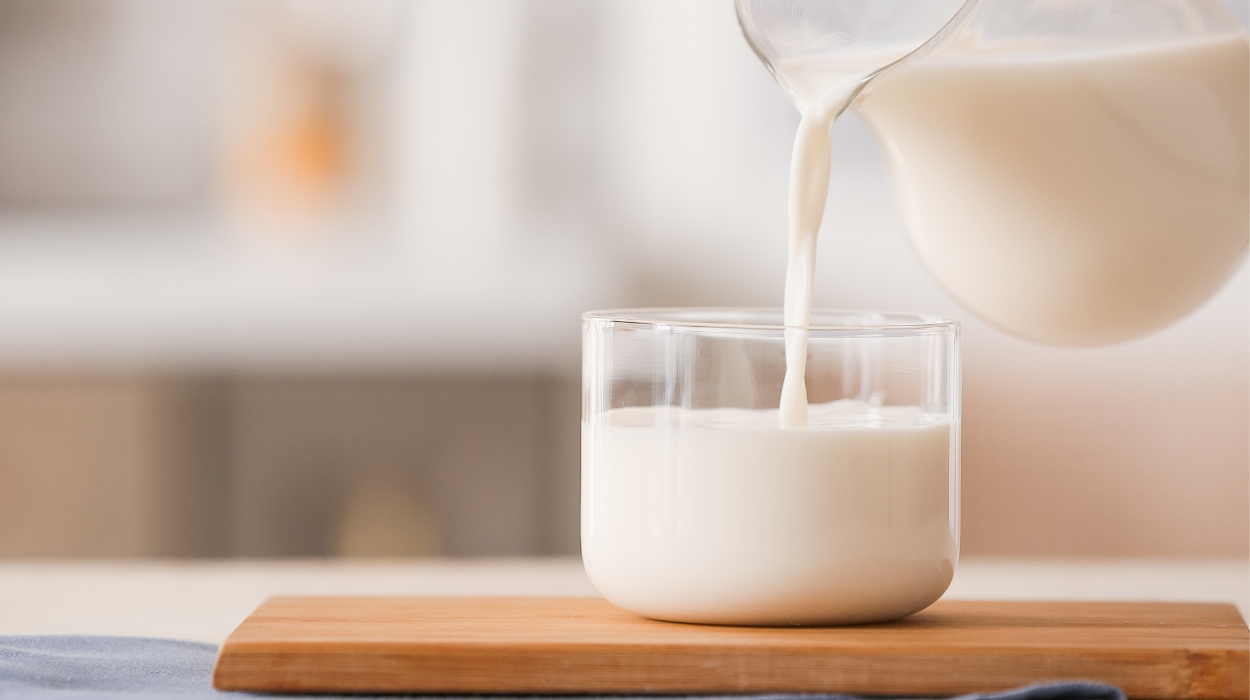Curious about the best milk for weight loss? In this article, we will look at the different milk options on offer. From dairy milk to oat, almond, and hemp milk, there are many different options to help you meet your goals.
The key to choosing the best milk for weight loss is figuring out your dietary needs and how best to meet them. Are you lactose intolerant or looking for a vegan alternative? You may wish to opt for a lactose-free version or plant-based milk. No matter your nutritional needs and dietary preferences, there is a milk option for you.
Best Milk To Drink For Weight Loss
The best milk for weight loss depends on your dietary needs and goals:
- Almond.
- Soy.
- Coconut.
- Cashew.
- Hemp.
- Macadamia.
- Oat.
- Dairy.
Best Milk For Weight Loss
So, which milk is best for weight loss? Your local supermarket likely offers dairy, lactose-free, and plant-based varieties derived from nuts, seeds, and grains. Be mindful to read the nutrition label and choose the unsweetened version.
It’s also important to choose a version that is fortified with vitamin D and calcium to ensure you are meeting your nutritional needs.[1] If you are lactose intolerant or following a vegetarian or vegan diet, the good news is that you can easily find plant-based alternatives to suit your needs.
Let’s dive into the best milk to drink for weight loss.
Almond Milk

First, let’s look at almond milk. Perhaps the best milk for weight loss, one cup of unsweetened almond milk[2] has 30 calories and 2.6 grams of fat. This makes it one of the least calorie-dense of all the plant-based options and one of the best milk alternatives for weight loss.
Almonds are known to be a good source of plant-based protein and fat.[3] While unsweetened almond milk contains monounsaturated fatty acids, which can promote weight loss, it is low in protein. It is also low in saturated fat and cholesterol.
Consider using unsweetened almond milk in your cereal or coffee. Alternatively, use it to make smoothies.
Soy Milk
Another milk alternative is soy milk. One cup of unsweetened soy milk has 38 calories and 3.5 grams of protein.[4] It is also low in fat, making it one of the best milk choices for weight loss.
Soy milk also contains more protein than most plant-based milk. Why is protein important for weight loss? The protein content in soy milk will satisfy you between meals and is good for muscle growth.
In addition to being good for weight loss, soy milk is also a good alternative milk for those with lactose intolerance.
Coconut Milk
One cup of unsweetened coconut milk[5] has 420 calories and 42 grams of fat. This makes coconut milk one of the highest-fat beverages. Consider limiting your coconut milk consumption to a couple of times a week, or choose a low-fat option.
Coconut milk also contains MCTs or medium-chain triglycerides,[6] which have been shown in research to help with weight loss. Coconut milk is a great addition to your recipes. Consider adding this non-dairy milk to curries or desserts.
Cashew Milk
One cup of unsweetened cashew milk[7] has 130 calories and 10 grams of fat and is another great plant-based milk made from nuts. The nutritional value and calories change depending on the brand. It is a natural source of healthy fats and often comes fortified, making it a popular choice for cereals or coffee.
Cashew milk has many health benefits. It contains vitamins E[8] and K, which support a healthy immune system and promote bone health.[9] Vitamin E is good for your skin and protects cells from stress and inflammation[10] due to its antioxidant properties.
If you’re adding cashew milk to your weight loss plan, be sure to choose unsweetened cashew milk. This contains less sugar than regular cashew milk, making it better for weight loss.
Hemp Milk
One cup of unsweetened hemp milk[11] has 60 calories, 4.5 grams of fat, and 3 grams of protein, making it a nutrient-dense option. You could add this to savory or sweet recipes alike. Hemp milk is made from hemp plant seeds and is rich in vitamins and minerals.
Hemp milk is also a good source of essential amino acids[12] and contains omega-3 and omega-6 fatty acids.[13] These fatty acids are good for your heart, brain, and skin.
Hemp milk is low in carbohydrates and may help with inflammation.[14] It also contains arginine[15] — an amino acid— which may help to protect your heart and lower your blood pressure.[16]
With its relatively low-calorie count, hemp milk is a great addition to a weight loss plan.
Macadamia Milk
One cup of this nut-based milk has only 55 calories[17] and is naturally low in carbohydrates. This makes it a great choice if you follow a low-carb diet as part of your weight loss plan.
Eating macadamia nuts has been shown to lower cholesterol[18] and your risk of heart disease. Macadamia nuts also contain omega-7 fatty acids,[19] which have been shown to help control blood sugar levels and lower the risk of weight gain.
Oat Milk

A favorite of many for making coffee, one cup of unsweetened oat milk[20] has about 70 calories, 1 gram of protein, and 3 grams of fat. It’s made from oats and water and often fortified with vitamin D, calcium, and B vitamins.
Oat milk is lactose-free and doesn’t contain nuts or soy, making it a good option for those with allergies. Besides this, oats contain beta-glucans[21] which are a kind of soluble fiber. This might help lower cholesterol and support heart health. Beta-glucans may also help blood sugar control.
As with other plant-based milks, be sure to choose unsweetened oat milk. This contains less sugar and fewer calories, making it better for weight loss than regular oat milk.
Dairy Milk
One cup of full-fat dairy milk has 149 calories, 7.9 grams of fat, and 7.7 grams of protein.[22] One cup of skimmed milk[23] has 83 calories, 8.4 grams of protein, and virtually no fat.
Milk contains many necessary vitamins[24] and minerals essential for good health. However, if you are trying to create a calorie deficit, consider lowering your portion sizes of whole milk or switching to skim.
Full-fat dairy milk, oat milk, and hemp milk have the most calories and fat. If you’re looking to cut back on dairy or are lactose intolerant, consider plant-based alternatives. Go for nutty almond milk or soy milk, which is full of protein and a great choice for weight management. These may also be good kinds of milk for a keto diet.
If you prefer to consume dairy, choose skimmed milk. It’s low in calories and fat but still full of all the calcium, protein, and vitamins you need to have a healthy balanced diet.
Benefits Of Drinking Milk For Weight Loss
There are many benefits of including milk in your diet, from normal dairy milk to plant-based options.[25] Each variety of milk has its unique nutritional value, so be sure to closely examine the ingredients, so you know what you’re consuming.
A lot of milks come fortified with B vitamins, along with vitamin D and calcium. Having the right levels of vitamin D helps you absorb calcium effectively.[26] Calcium works by improving your metabolism[27] and aiding in the way your body breaks fat down. It is also essential for healthy bones and teeth.
Furthermore, the MCTs[28] in coconut milk may contribute to weight loss. Use coconut milk in your cooking as an addition to recipes.
Best Time To Drink Milk For Weight Loss
Wondering when is the best time to drink milk to boost your chances of losing weight? Similar to drinking water before meals to curb your hunger, you can adopt the same approach with milk. Consider drinking a cup of plant-based or skimmed milk before you eat to get the nutritional benefits and feel more satiated.
Drinking milk before a meal may help you eat less and create a calorie deficit, aiding in your weight loss journey. By eating fewer calories and exercising regularly, you will burn more calories and start to see improvements in your weight.
How many calories you consume depends on your body and your activity levels. A calorie deficit of 500-1000 calories per day[29] is recommended for weight loss. Make sure to speak with your health provider before making changes to your diet.
Replacing sugary drinks with milk can be a great way to cut back on consuming unhealthy beverages and lower your calorie intake. It’s also a great way to eat healthy, low-calorie snacks. In addition, you may want to consider adding a diet pill to a balanced diet.
Conclusion
To sum up, milk is a great addition to a healthy, balanced diet. Depending on the type of milk, it contains protein, essential fats, vitamins, and nutrients to support your weight loss journey.
For the leanest, low-fat option, choose skimmed dairy, almond, or soy milk. Be sure to check the ingredients and opt for an unsweetened variety fortified with vitamin D, calcium, and B vitamins.
Frequently Asked Questions
Oat milk is more nutrient-dense, whereas almond milk is a low-fat, low-calorie option but has fewer nutrients. If you have nut allergies, opt for oat milk.
Almond milk is your best go-to option for low-calorie milk, having about 30 calories per cup.
Skimmed milk is the healthiest dairy milk. The best plant-based option would be coconut or hemp milk.
 Evidence Based
Evidence Based
